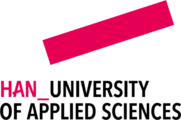Circular Economy

The economy of the future no longer relies on maximizing profits. Instead, it is based on reproducing, recycling, and reusing. In this masters in circular economy, you help international companies transition to sustainable business practices.
What do you learn?
This circular economy degree gives you invaluable knowledge and practical experience. You'll work on real sustainability issues in an international context. Learn and work together with an international team of students, lecturers, and professionals. Gain the skills to help companies and organizations become future-proof.
The full-time Circular Economy program takes 1 year and covers 2 semesters. The key focus? Doing practice-based research for an international company together with a fellow student. During your program, you learn how to create business models based on multiple value creation. And you learn the ins and outs of multidisciplinary collaboration. For most of the program, you get to choose your own learning objectives. The master comprises a total of 60 ECTS credits.
What can you do with this sustainability masters?
It’s a no-brainer that companies and organizations have to make the transition to sustainable business practices. With a masters in Circular Economy at HAN University of Applied Sciences, you know how to deal with sustainability issues in an international context. As a change agent, you don't just help international companies innovate. You also make invaluable contributions to preserving the environment and mitigating the climate crisis.
Į magistro studijų programas gali stoti visi, baigę universitetą arba besimokantys paskutiniame kurse. Studijos kurias baigei ar tebesimokai turi būti panašios krypties kaip ir tos, į kurias nori stoti, kadangi priėmimas yra paremtas ECTS kreditų suderinamumu.
- ECTS kreditų išrašas - jei dar nesi baigęs aukštosios mokyklos, būtina prisegti ECTS kreditų išrašą, kuriame būtų matyti, kokius dalykus Tu mokeisi bei kokius pažymius ir kiek kreditų už juos gavai. Kai siunti anketą paskutiniame kurse, diplomą reikia prisegti vėliau, kai tik jį gausi.
- Bakalauro diplomas – jei jau esi baigęs aukštąją mokyklą, išrašo nereikia, užtenka prie anketos prisegti savo Bakalauro diplomą.
Anglų kalbos žinias gali patvirtinti vienu iš šių būdų (kokio balo reikalauja tavo pasirinkta programa rasi prie programos stojimo reikalavimų):
- IELTS
- TOEFL
The Netherlands strives to make its full transition to a circular economy by 2050. Companies and organizations will therefore have to fully embrace sustainability. Keeping up with old business models is no longer an option. So the demand for specialists who really know how to facilitate this transition is huge.
After completing your MSc in Circular Economy, you can work at an international organization in any number of roles.
How do these positions sound?
- SUSTAINABLE BUSINESS OPERATIONS MANAGER
You’re in the lead for making sustainability policies. You delve into all the aspects that surround sustainability, ranging from waste separation and saving energy to conserving fossil fuels.
- ENVIRONMENTAL ADVISOR
You work for an engineering office or another consulting firm. Or you start your own business! You help companies and municipalities in their transition to circular entrepreneurship.
- ENVIRONMENTAL POLICY ADVISOR, CLIMATE AND WASTE MANAGEMENT
You advise governments or organizations about regulations, incentive policies and collaboration between the private and public sector.
- CIRCULAR ECONOMY CHANGE AGENT
You transform plans to actions. You create change projects in organizations and know exactly how to encourage your colleagues to embrace sustainability. Step by step you prepare your organization to start doing business in a sustainable way.

